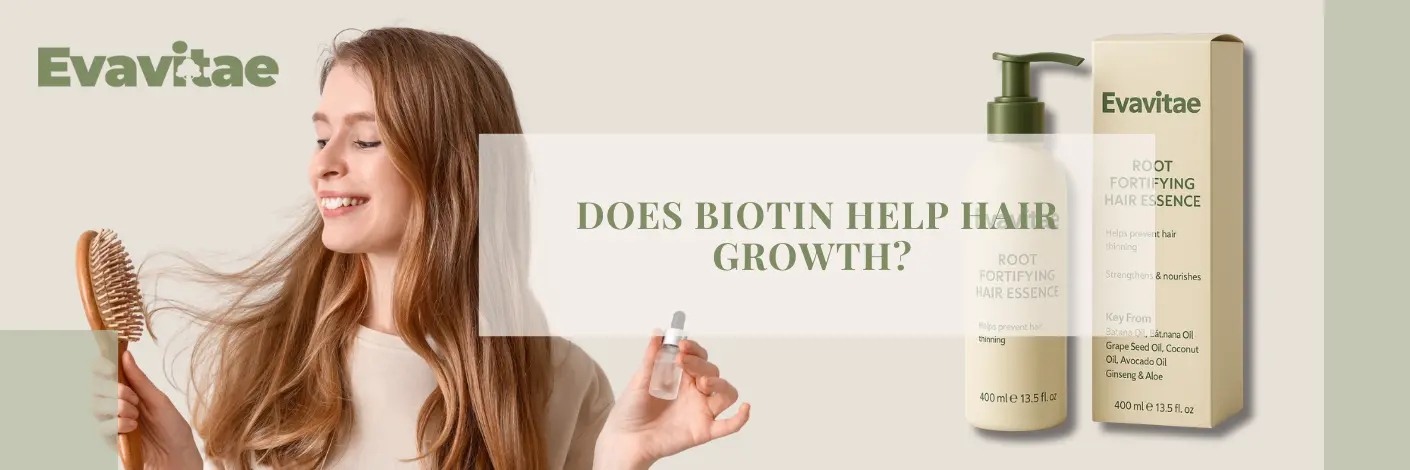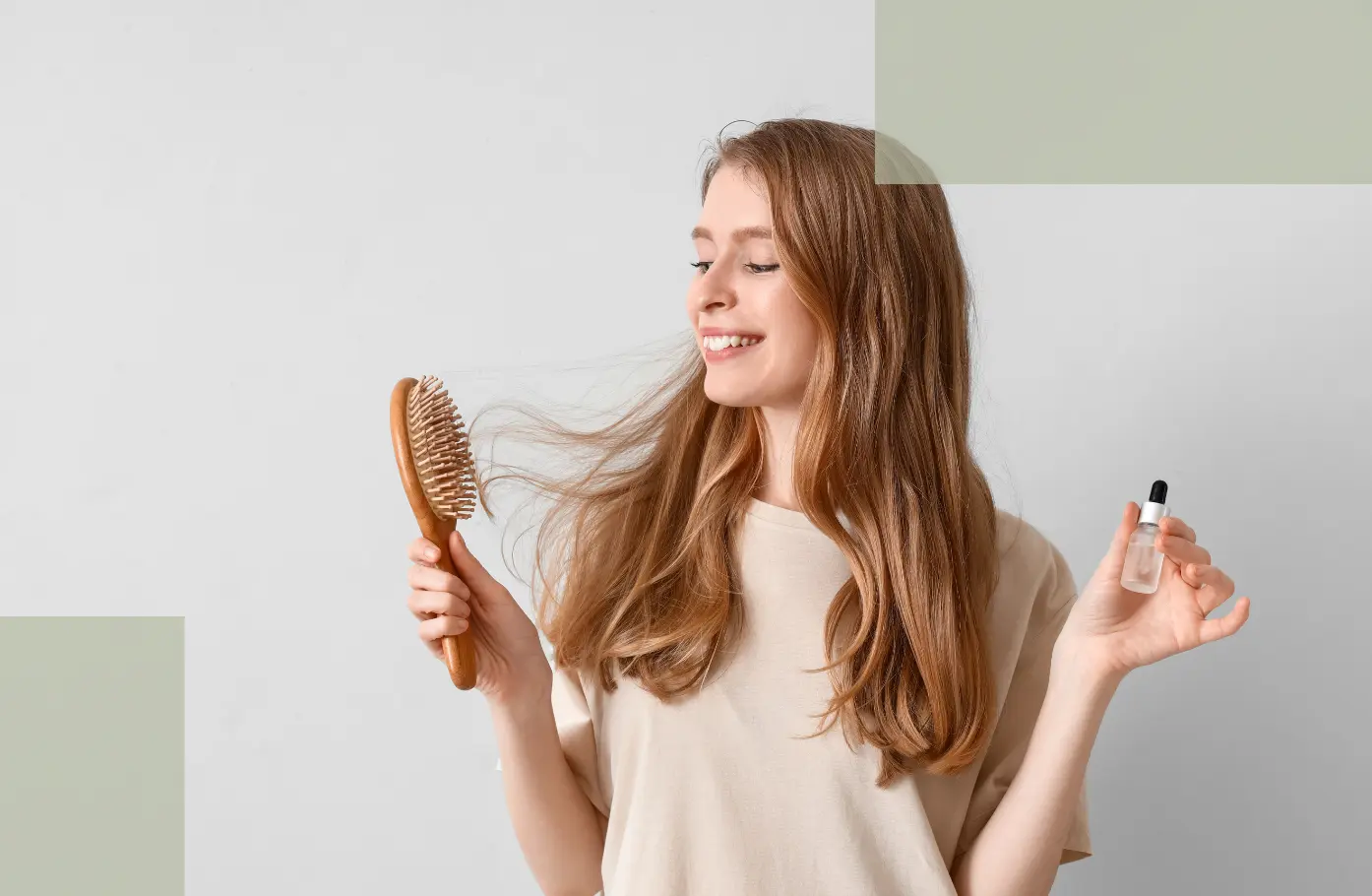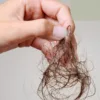Scroll through any beauty aisle or supplement shelf and chances are, you’ll spot “biotin” plastered across shampoo bottles, hair gummies, and skin capsules. It’s touted as a miracle nutrient for stronger, longer hair—but what’s the truth?
If you’ve ever asked yourself, “Does biotin really help hair growth?” — the answer is: it depends. In this blog, we’ll explore what biotin actually does, when it works, and how to support your hair growth journey gently with smart topical care.
🧬 What Is Biotin, and Why Does It Matter for Hair?
Biotin, also known as Vitamin B7, is part of the B-complex vitamin family. It plays a vital role in:
- Converting food into energy
- Supporting the health of your skin, nerves, digestion, and most notably—hair and nails
Biotin helps the body metabolize keratin, the protein that makes up the structure of your hair. Without enough of it, your hair strands may weaken, leading to breakage or thinning.
❓ So, Does Biotin Help Hair Growth?
Here’s the nuance:
Biotin does help with hair growth — but mainly when a deficiency exists.
According to the National Institutes of Health (NIH), biotin deficiency is rare in healthy individuals, but it can happen. People more at risk include:
- Pregnant or breastfeeding individuals
- Those with conditions like Crohn’s disease or alcohol dependency
- Individuals on long-term antibiotics or anticonvulsants
In these cases, biotin supplementation can noticeably improve hair strength and growth. A 2017 study published in the journal Skin Appendage Disorders found that biotin supplements significantly improved hair health in women with thinning hair linked to deficiency (Trüeb et al., 2017).
✅ Conclusion: If you’re not deficient, popping biotin won’t magically speed up hair growth—but if you are, it could make a real difference.
🔍 Signs You Might Be Low in Biotin
Most people don’t need to test their biotin levels unless they have symptoms like:
- Excessive hair thinning or breakage
- Skin rashes (especially around the mouth and nose)
- Brittle nails
- Chronic fatigue
If you’re unsure, talk to a healthcare provider about testing or switching up your diet to include more biotin-rich foods.
🍳 Biotin-Rich Foods to Support Healthy Hair
Before reaching for a supplement, try adding these natural sources of biotin into your meals:
- Egg yolks
- Salmon
- Avocados
- Sweet potatoes
- Nuts and seeds (especially almonds and sunflower seeds)
- Legumes
Balanced nutrition goes hand in hand with a healthy scalp ecosystem.
Biotin can support hair growth internally, but pairing it with natural topical solutions can enhance overall results. Learn more in our article on natural hair products for hair growth and the science behind clean beauty.
📚 External Resource: Harvard School of Public Health – Biotin in the diet
🧴 Topical Hair Care Still Matters—Here’s Why
Even if you’re working on biotin intake internally, topical care plays a vital role in minimizing breakage and keeping your scalp healthy—especially if you have a sensitive scalp or are dealing with hair shedding due to stress, hormones, or postpartum changes.
Look for hair products that are:
- Fragrance-free and sulfate-free (to avoid irritation)
- Enriched with biotin and panthenol to support the scalp’s moisture barrier
- Contain plant-based oils like avocado, batana, or argan oil
These ingredients help reduce scalp inflammation, strengthen follicles, and improve hair’s appearance while your body does the deeper work.
Choosing the right shampoo can make Biotin-based routines even more effective. For detailed guidance, explore our article on how to choose the right hair loss shampoo for women to support faster, healthier regrowth.
If you’re evaluating topical add-ons alongside Biotin, it helps to know the trade-offs of popular oils. Here’s an evidence-informed look at Wild Growth Hair Oil—how it works, its limits, and who it may suit.
💡 Biotin Supplements: What You Should Know Before Taking Them
- diet. Supplements often contain 5,000–10,000 mcg — more than needed unless you have a deficiency.
- Safety: Biotin is water-soluble, so excess is typically excreted in urine. But mega-doses can interfere with lab results, including thyroid tests and cardiac troponin levels (FDA, 2017).
- Timing: Even with a confirmed deficiency, results can take 3–6 months of consistent use to show effects on hair growth.
👉 Always consult your doctor before adding new supplements—especially at high doses.
🛁 Sample Biotin-Friendly Hair Routine
Step | Product Type | Goal | Tips |
Shampoo | Sulfate-free, biotin-infused | Cleanse gently | 2–3 times per week |
Serum | Lightweight with oils + biotin | Hydrate and protect scalp | Daily or after wash |
Nutrition | Biotin-rich foods or supplements | Support from within | Combine with iron, zinc, protein |
Styling | Low-heat, loose styles | Prevent breakage | Use wide-tooth comb |
📬 Final Thoughts: It’s All About Balance
Biotin can help with hair growth—but it’s not a one-size-fits-all miracle. It works best as part of a whole-person approach:
- Confirm whether you have a deficiency
- Eat a biotin-rich, nutrient-dense diet
- Use gentle topical products that support your scalp’s natural health
And above all—be patient. Healthy hair takes time, and real change is built on consistent, low-irritation care.
Of course, we also hope that you can carefully understand the product ingredient list of Evavitae and give our products a chance to communicate with you.
💧 Discover research and formulation insights that power each ingredient in the Ingredients & Science Hub.
For a full overview of causes, remedies, and safe products, visit our Comprehensive Postpartum Hair Loss Resource.
📚 References (APA Style)
- Trüeb, R. M., Henry, J. P., Davis, M. G., Schwartz, J. R., & Gassmueller, J. (2017). Biotin Supplementation in Women with Hair Loss: A Retrospective Case Series. Skin Appendage Disorders, 3(3), 166–169. https://doi.org/10.1159/000462981
- National Institutes of Health (NIH). (2022). Biotin Fact Sheet for Health Professionals. https://ods.od.nih.gov/factsheets/Biotin-HealthProfessional/
- U.S. Food and Drug Administration (FDA). (2017). Biotin (Vitamin B7): Safety Communications. https://www.fda.gov/medical-devices/safety-communications
Evavitae products are now available exclusively at www.evavitae.com.





Add comment
You must be logged in to post a comment.